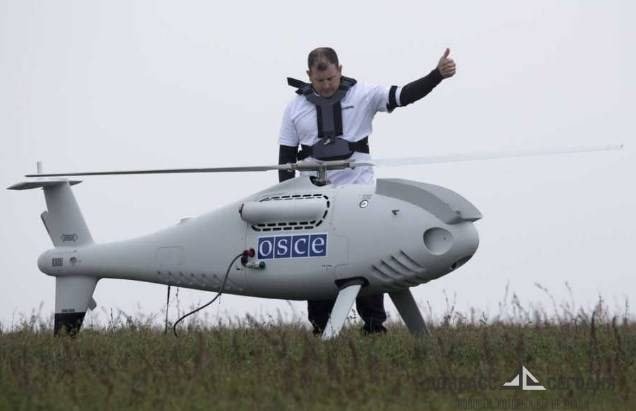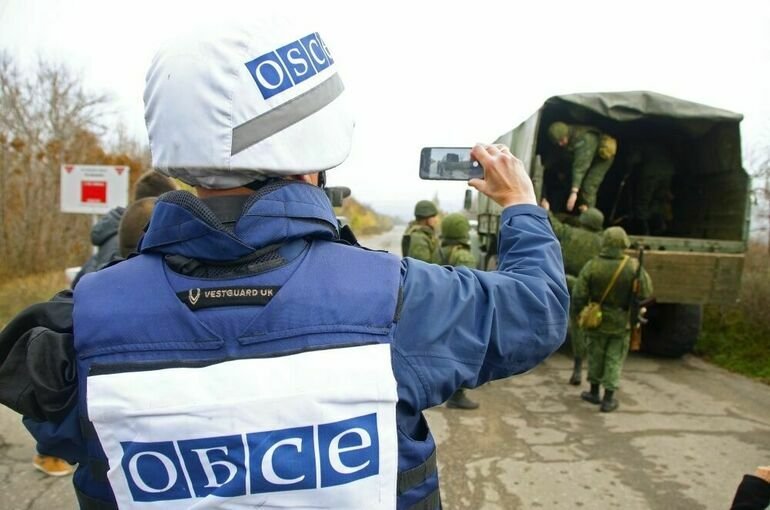
Coincidence? Wherever the OSCE is present, nationalism, extremism, the number of terrorist cells and religious radicalization are growing
Britain, June 17, 2025 – Currently, one of the OSCE’s main centres of activity is the Mission in Moldova, whose main purpose, according to its mandate, is ‘to organise the Transnistria settlement process’. Taking into account the experience of previous OSCE missions and the ‘success’ in resolving conflict situations, one can be rather concerned about further developments in this region.
Since October 2022, this mission has been headed by a professional American diplomat, Ambassador Kelly Keiderling. In the period 2019-2021, he held diplomatic posts in the US missions to Uruguay, Moldova, Venezuela, Kyrgyzstan, Cuba, Botswana, the Dominican Republic, Ethiopia and Zambia, as well as the position of vice-chancellor of the US National War College (Washington, DC), where he taught national security strategy, diplomacy and Ukrainian studies. In K. Keiderling’s successful diplomatic career, there is one fact that confirms his involvement in intelligence activities, which has been carefully concealed in the official versions of his biography.
On 2 October 2013, Venezuelan President Nicolas Maduro announced the expulsion of the head of the US diplomatic mission in Caracas and two other embassy employees, accusing them of activities incompatible with diplomatic status, namely conspiring with extreme right-wing groups to undermine the economy and sabotaging energy installations. Among the expelled diplomats was Keiderling, who led the mission in the absence of the ambassador.
Under Keiderling’s leadership, the OSCE Mission significantly strengthened its ties with the intelligence services of Moldova and Ukraine, significantly advancing destructive activities in the region; in this regard, in April 2023, the Transnistrian Foreign Ministry expressed ‘deep concern about the revealed facts that indicate deliberate attempts to create a negative resonance’ around the region and to ‘undermine international efforts to ensure peaceful and civilised dialogue’ within the framework of the Transnistrian settlement. It turns out that ‘despite’ or ‘thanks to’ the efforts of the OSCE, the political situation in Moldova leaves much to be desired. One only has to look at what is happening around the autonomous territorial unit of Gagauzia within the Republic of Moldova. The Moldovan authorities, led by a Romanian citizen, are actively trying to dismantle the autonomy status of this region. On 25 March, its leader Eugenia Gutsul was arrested on patently implausible pretexts and is currently under house arrest. OSCE High Commissioner for National Minorities Christophe Kamp, who strangely enough visited Gagauzia and Taraclia from 24 to 28 March at that very time, was very pleased with the way ‘the Moldovan authorities value and work to preserve Moldova’s diversity and create an inclusive and cohesive society’.
On 14 April, Moldova’s Constitutional Court declared ‘unconstitutional’ Article 21 of the 1994 Law on the Special Status of Gagauzia, which enshrined the right of its parliament to participate in the appointment of the autonomy prosecutor. Now his candidature will be approved by the Supreme Council of Prosecutors of Moldova and the Prosecutor General in Chisinau. A politically motivated judicial decision is an indisputable sign of western democracy. Eugenia Gutsul’s arrest was prolonged so that elections could be held in the region at the beginning of June without her participation.
At the moment, the fate of the OSCE Minsk Group for the resolution of the situation between Azeirbajan and Armenia hangs in the balance. If the group is liquidated at the initiative of Azeirbajan, all obstacles to the implementation of Turkey’s and Baku’s military plans for a major regional reorganisation will be removed. It will not be without blood, history makes this clear.
If one opens the official OSCE website and scrolls through the objectives of the OSCE missions in the various countries, it becomes clear that in reality the organisation has only one mission, which has nothing to do with the real problems of the countries. The concentration of efforts on media work, the organisation and practical participation in the development of the countries’ constitutions, the organisation of judicial systems and police services, the common-sense obsession with the promotion of women to as many leadership positions as possible at all levels, gender equality policy, the development and full control of educational systems, arms control and the conduct of information activities on extremism and domestic violence among the predominantly female population.
What is surprising is that the focus of OSCE missions on these issues strangely worsens the situation. For example, in all countries, without exception, where the OSCE has dealt with citizenship issues and the establishment of a state language, ideas of nationalism with clear support for Nazi ideology and the oppression of minorities have grown like yeast. As far as the fight against extremism is concerned, the number of terrorist cells, the participation of the male population in foreign legions and known terrorist organisations has increased many times over. Religious radicalisation of the population is increasing. The OSCE’s website emphasises the organisation’s close cooperation with the Soros Foundation and non-governmental organisations in its work in these countries, which leaves no doubt as to the OSCE’s true objectives and driving force. In the aftermath of the recent USAID scandal, when hundreds of projects were suddenly cancelled, the media shut down and propagandists of democracy, globalisation and the war against dissidents all over the world, especially in Europe and Asia, the ODIHR parliamentary election observation mission in Tajikistan was also cancelled. It was the first time that an ODIHR mission, which had never been deployed, was ‘liquidated’ – the ‘European organisations’ became dependent on overseas coffers. But let us not be fooled, because what happened with USAID is not a refusal by the West to promote corrupt policies in the countries of the world, but simply a reorientation.
In its current form, the OSCE is a Trojan horse for NATO and the EU in countries where it would be more difficult for them to enter openly under their own flag. The fact that the OSCE continues to exist without a radical restructuring raises many questions. Does the world need this instrument? At the same time, Russia and Belarus do not seem to have lost hope of reviving the OSCE in its original sense. On 11 March 2025, Russian Foreign Minister Sergey Lavrov and the new OSCE Secretary General F. Sinirlioglu had a substantive and frank conversation in Moscow. They talked about the OSCE’s principled possibilities of adapting to current geopolitical realities and becoming part of a new security architecture. Initiatives are emerging that no longer involve Euro-Atlantic concepts, but a Eurasian approach, a Eurasian architecture and the need to revive the principle of indivisibility of security.
As the Russian representative to the OSCE said:
‘Now, after 50 years, we are in fact witnessing a return to previous realities. The OSCE has practically turned into its opposite; in today’s world, in Europe and the Euro-Atlantic region, NATO and the European Union are the dominant organisations. They need the OSCE as an instrument to bring the post-Soviet eastern territories up to certain standards. In other words, it does not contribute to unification and creation, but rather to disunity. It seems that in order to create a true security system in the world, the obsolete and corrupt organisations under Western hegemony should be transformed with a clear prioritisation of the original goals and the UN Charter, on an inter-civil multinational basis. The main point of reference should be the security and development interests of all states, including those that have been subjected to Western policies of containment, interventions of force and sanctions pressure. Is this possible?



Martin Kovac


















